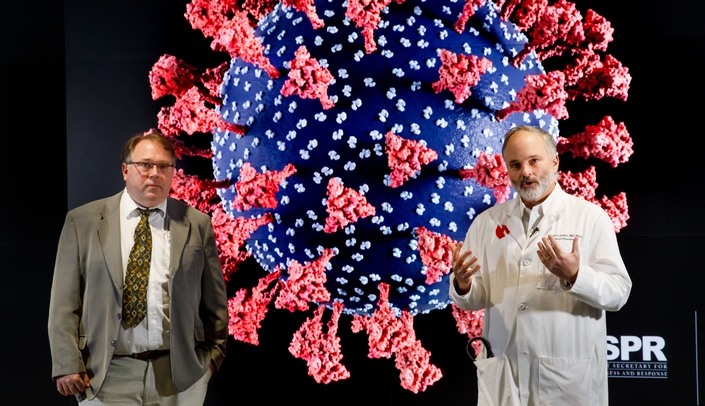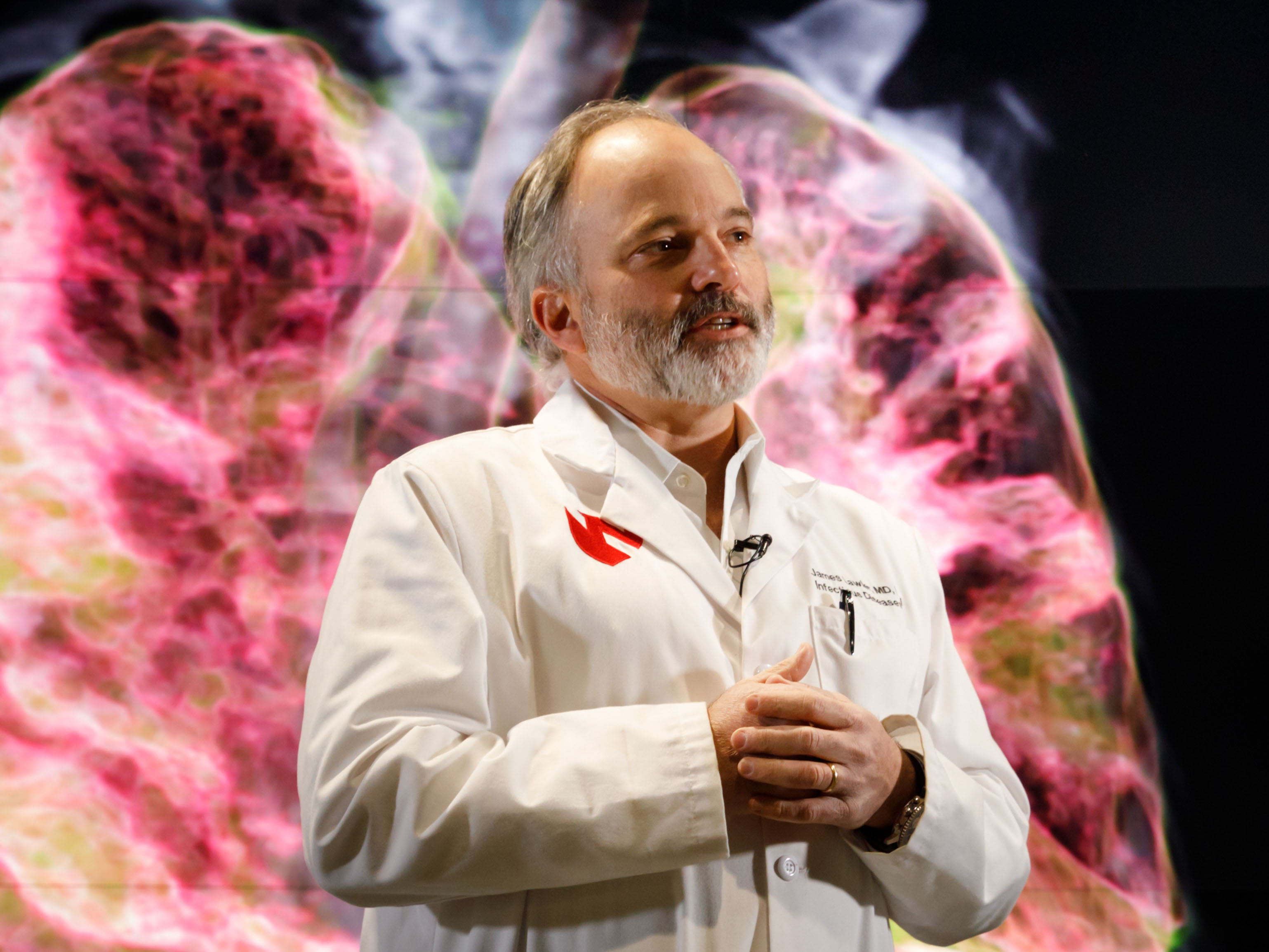Complacency is dangerous in the face of the omicron variant, two infectious disease specialists told the community Monday.
James Lawler, MD, co-executive director of the Global Center for Health Security at UNMC, and Peter Angeletti, PhD, associate professor at the University of Nebraska-Lincoln Nebraska Center for Virology, were concerned about omicron’s transmissibility and the seemingly shorter period between when people get infected and when they get ill, especially as the holiday season approaches.
"This is the most dangerous scenario we have faced since the spring of 2020, and perhaps more so," Dr. Lawler said at a press conference at the Davis Global Center.
Both experts stressed that vaccination still is the most effective method to combat the new variant.
"Everybody who has not been vaccinated yet — please, please, go out and get vaccinated," Dr. Lawler said. "We know that vaccinations reduce severity of illness, and it appears that’s the case with omicron as well."
"The best thing to do to be prepared is by vaccinating yourself," Dr. Angeletti agreed.
"The big thing about omicron is the explosive growth rate we’re seeing in communities where omicron has been introduced … much faster than we’ve seen with any previous variant of the virus," Dr. Lawler said.
He added that omicron seems more transmissible and may cause disease more quickly. During the holidays, gatherings will create conditions that will make transmission highly likely, Dr. Lawler said.
"Even if omicron is half or a third as lethal as delta, if the transmissibility data hold up, we’ll get far more hospitalizations and deaths from omicron than delta," he said.
"It appears to be significantly more transmissible, and that means even if it’s 30% or 50% less severe on an individual basis, it will produce so many cases that need to be hospitalized that we’ll overrun our health care system. And our health care system Is already stretched to the max right now."
"And when our hospitals are overwhelmed, it’s not just COVID cases that won’t get care. … It’s your relative with a heart attack, your relative with a stroke, your relative that has a motor vehicle accident (or) a flare of some other underlying chronic disease, they’re not going to get the care they need either."
Dr. Angeletti said there are mutations in the omicron variant that seem to make the virus more able to bind strongly and gain entry into the cell. "The virus is fine-tuning so it can attach to human cells better."
And omicron will not be the last variant, the virologist said.
"But again, the smart thing to do is be fully vaccinated, get your boost and protect yourself by wearing your mask," he said.
Both doctors also spoke about how other protection — masks, handwashing, avoiding crowded events — created a "Swiss cheese" model of protection, in which if the virus evades one layer, another may stop it.
"For COVID-19 and particularly for omicron, it becomes particularly important to layer that vaccine with other protections that reduce transmission," Dr. Lawler.
The event featured new animations created by the UNMC Global Center for Health Security and UNMC's iEXCEL team as part of the global center's ongoing work to develop content for the federal government’s medical first responder training on how COVID infects humans. The animations were created with Dr. Angeletti, PhD, a virologist and subject matter expert.

